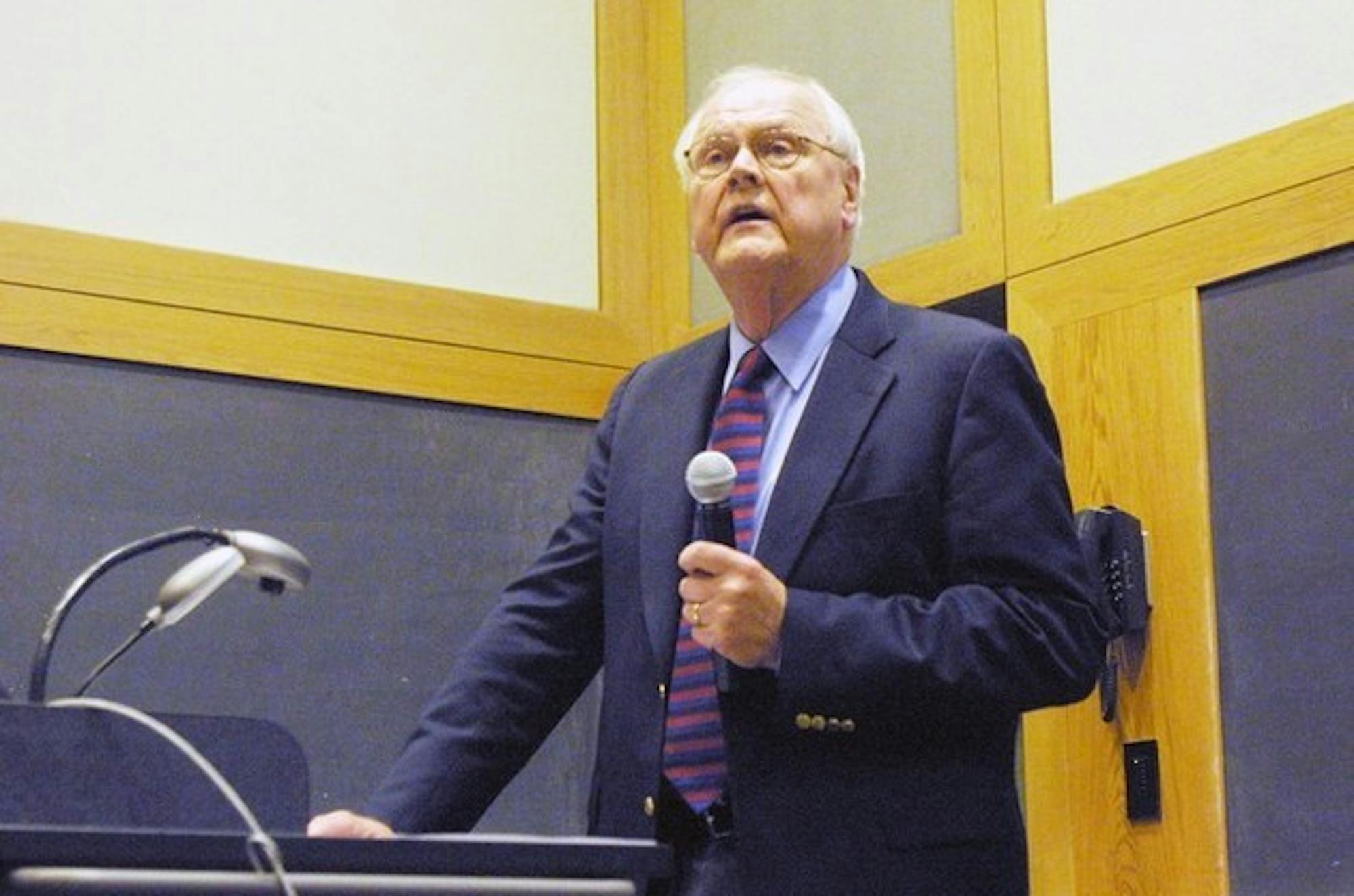"Jim was an intellectually curious man. He encouraged the community to question, probe and take pleasure in learning about ourselves and our world," Wright said in his address. "He made Dartmouth a fundamentally more interesting place."
Wright also spoke about the need for Dartmouth to remember and accept its past mistakes and failures.
"We must call attention to great actions and failures," Wright said. "Freedman sometimes asked some difficult questions of this College's history. We have some matters in our past that we are not proud of ... there is nothing lost in our history by trying to understand it."
Wright spoke about the history of different minority groups at Dartmouth, specifically blacks and Native Americans. He highlighted the importance of understanding Dartmouth's past discrimination of these groups, stating that "their views need to be part of our fundamental memory."
Scherr followed Wright with an address that spoke to Freedman's success in decreasing anti-Semitism at Dartmouth. Scherr mentioned the history of anti-Semitism at Dartmouth by noting that in the 1930s the College had admissions quotas that were designed to preserve a certain physical appearance among the student body.
"Freedman came to the conclusion that the past belonged to the past. He reached a milestone where those who had once been excluded or marginalized now found their home in the present," Scherr said.
Scherr also spoke of Freedman's need to understand the significance of being a Jewish president at an Ivy League institution whose history is steeped in anti-Semitism.
"Freedman needed to bring to Dartmouth a sense of what it meant for him to be a Jewish president. He needed to find redemption both institutionally and personally," Scherr said. "Dartmouth's past is still a part of its present and we are bringing it with us. It is necessary to open up the discussion and carry it forward."
Freedman served from 1987 to 1998 as the 15th president of Dartmouth and is credited with establishing the College as one of the national leaders in undergraduate teaching and scholarship.
Freedman played a crucial role in the foundation of the Roth Center for Jewish Life, home to the Dartmouth Hillel.
He also led a comprehensive overhaul of the Dartmouth curriculum, establishing or revitalizing programs in Latin American, Latino and Caribbean studies and Jewish studies, among others. Freedman introduced the teaching of Arabic, Hebrew and Japanese languages and incorporated majors in women's studies and African and African-American Studies.
Under Freedman's administration, Dartmouth achieved gender parity in the student body. Scherr's speech, however, focused solely on Freedman's contributions to decreasing anti-Semitism at Dartmouth.
The conference also included a lecture entitled "The Politics of Memory in Postwar Europe" and a roundtable discussion chaired by professor Richard Ned Lebow.
The Rockefeller Center Public Policy and the Social Sciences and the John Sloan Dickey Center for International Understanding sponsored this event.
Correction Appended
For the record: An article on Oct. 23 ("Wright celebrates Freedman's legacy") incorrectly stated that former College President James Freedman had succeeded "in decreasing anti-Semitism at Dartmouth through the elimination of an admission quota for Jewish students." Admission quotas for Jewish students did not exist when Freedman arrived at Dartmouth, Provost Barry Scherr was instead referring to quotas that existed long before Freedman's tenure.




